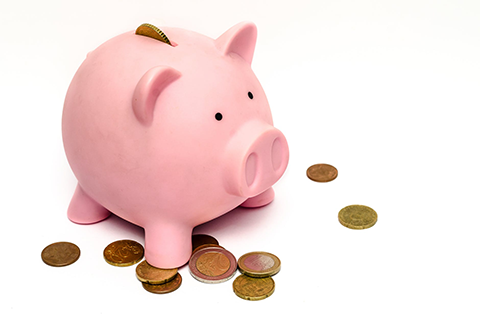Everyone knows that bankruptcy is something to be avoided, but many have little or no idea of what it is and why people would file for it. It should generally be regarded as a fail-safe because although it may get rid of your debt, it also comes with some significant reputation-damaging implications.
If you navigate through financially desperate times carefully, transcending these dire straits and making your way back to prosperity is entirely realistic. However, you can bounce back much quicker if you can avoid declaring bankruptcy at all costs since the latter means you don a scarlet letter in the eyes of lenders indefinitely.
This article will explore what bankruptcy is, as well as some ways that it can be averted.
Fundamentals Of Bankruptcy
In the United States, all cases of bankruptcy are handled by the federal courts. Generally, the debtor and the judge have little to no direct contact in these cases, unless a dispute is made by the creditor.
All cases are categorized by chapters of the Bankruptcy Code. Chapter 7 involves asset liquidation, Chapter 11 involves financial reorganizations, and Chapter 13 involves debt repayment with lowered payment plans.
Chapter 7
If the debtor has little to no assets in their name, they file for Chapter 7 bankruptcy. This gets rid of debts that cannot be paid off, including medical bills or credit cards. Any nonexempt assets of value are necessarily liquidated to repay some or all of the debt. However, some people who have no nonexempt property of significant value repay none of their debt.
Chapter 11
This is a type of bankruptcy generally filed by businesses that need to reorganize in order to generate profits again. Filing for Chapter 11 allows the company to continue about its daily operations without being interrupted. At the same time, a repayment plan is crafted under the supervision of the court.
Chapter 13
This chapter involves individuals who may have filed for Chapter 7 but made too much money to qualify. This allows companies or individuals to rework debt repayment, without having to resort to liquidation of their nonexempt property.
Consequences of Filing
While you are relieved of debt if you file, your credit rating takes a serious hit: a Chapter 7 filing remains on your credit report for a decade, while Chapter 13 remains for 7 years. All creditors that you seek funds from during that time will see a discharge on your credit report and deny your requests.
Ask Creditors For Help
Creditors know that they lose if you file for bankruptcy, which means they might be willing to fork over some extra funds to keep you from going under. Let them know that this is a short-term crisis, and assure them that their loan will be repaid in full.
Sometimes credit cards or banks have a hardship plan, which allows you to alter the terms of your repayment. If you call the company and explain your situation, there’s a chance they will have sympathy and allow you some leeway that they wouldn’t have otherwise.
While utilizing a hardship plan will not affect your credit score per se, the creditor may still put a note on your credit reports that explain that you are participating in their hardship plan. Seeing this note could leave other lenders feeling a bit uneasy about loaning you their money.
Consulting A Bankruptcy Lawyer
Among the best chances of remediating your financial strife is by consulting legal advice regarding bankruptcy. Filing for Chapter 7 or Chapter 13 can potentially result in poor credit rating, but consulting a bankruptcy lawyer will help to mitigate the negatives of this precarious situation.
The law is complicated and dense, especially when it comes to financial laws. Thus, it makes more sense to see a legal professional to fully understand all of your options and likely outcomes. Who knows, things might not be nearly as bad as you think.
Trimming Your Overhead Costs
There are probably certain amenities that are nice to have, but which you can do without. These may include cable, a landline, or extra phones. By reducing these nonessential costs, you have more funds at your disposal and thus have a better chance of reaching the light at the end of the tunnel without needing to resort to bankruptcy.
If you truly have no recurring costs that can be done away with, consider picking up another job or hobby that can put some extra money in your pocket.
Selling Off Assets
While it will depending on your unique situation, there’s a good chance you’re better off selling some assets to avert declaring bankruptcy. This should be done sooner rather than later, as getting too far behind on payments is a one-way trip to bankruptcy unless you catch up.
Today, selling off your possessions is easier than ever, with sites like Ebay, Craigslist, and a host of Smartphone apps. Selling your things to pay off debt may seem extreme, and many balk at the idea of living without their beloved jewelry or furniture. In the end, the short-term inconvenience of not having your favorite couch is probably far preferable than being stuck under the shadow of bankruptcy for the foreseeable future.








